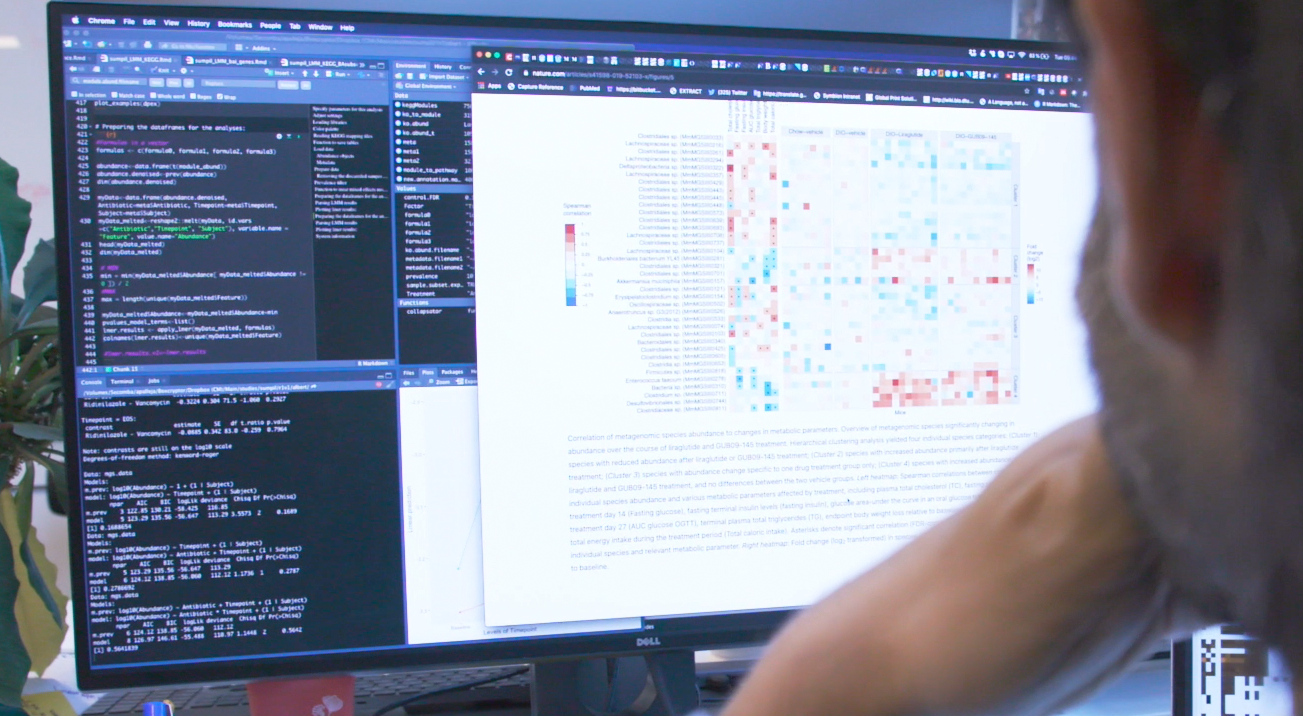
We combine in-depth biological understanding and powerful bioinformatic tools – and an unparalleled ability to innovate new analytical techniques and approaches – to find the answers to your questions.
Profiling of metagenomics data is the foundation of all microbiome research. Our CM Profiling 2.0 provides the most comprehensive, precise and sensitive profiling for the human microbiome. With 6809 species, a recall that is 16% better than competing methods and a false abundance call (FPRA) that is at least 400 times better than any other method, the CM Profiling 2.0 has no equal.
We offer Quantitative Microbiome Profiling (QMP) as a service to gain information on absolute abundances from metagenomics data. QMP provides valuable information about the absolute microbial population sizes rather than relative abundances.
QMP is an invaluable tool when studying microbiome community dynamics in microbiome development in infancy, during diseases, or for truly understanding the impact of antimicrobials.
Our Clonal-level Microbiome Profiling™ provides clients with the most sensitive and accurate microbiome analysis available in the microbiome field. Our method provides you with information about clonal populations (i.e. strains) found in your samples based on variations at the single nucleotide (SNV) level.
The method is particularly powerful for engraftment analysis through tracking of LBPs, probiotics or donor strains from Fecal Microbial Transplants in samples collected after treatment.
Many microbiome studies require an understanding that goes beyond which microorganisms are present (i.e. the taxonomic composition). Enhanced understandings often come from knowledge about what microorganisms can do – in other words, their functional potential. Functional microbiome analysis reveals what microorganisms are equipped to do based on the genes they have, and it provides crucial insights on how the microbiome affects health and disease.
Microbial communities are heavily influenced by antibiotics and other antimicrobials. Microbiome compositions, both relative and absolute abundances, not only change, but species also respond to antibiotic treatments by acquiring and disseminating antibiotic resistance genes (ARGs). With the CARD database and our proprietary annotation and organization of species we provide clients with a detailed resistome analysis that provides insights on antibiotic resistance genes (ARG), classes and whether the ARGs can be transferred horizontally or is comprised of species that are considered commensal, pathogenic or an opportunistic pathogen.
We provide multi-omics data integration to help you maximize insights from your microbiome study. The most powerful studies are designed to integrate data from various multi-omics platforms such as metagenomics and metabolomics to elucidate the intricate host-microbiome interplays and effects of interventions. Our computational solutions in multi-omics data integration help you navigate the complexity and connect the dots between different types of data for understanding mechanisms of action mediated directly or indirectly through the microbiome.
Artificial intelligence is causing a paradigm shift in almost all fields of science and business. In microbiome science, artificial intelligence is often developed through machine learning (ML) techniques. As microbiome datasets increase in size and are increasingly accompanied by richer metadata and multi-omics measurements, they become more suitable for machine learning. We offer expertise and several strong ML platforms for classification, logistic regression ML, and deep learning.